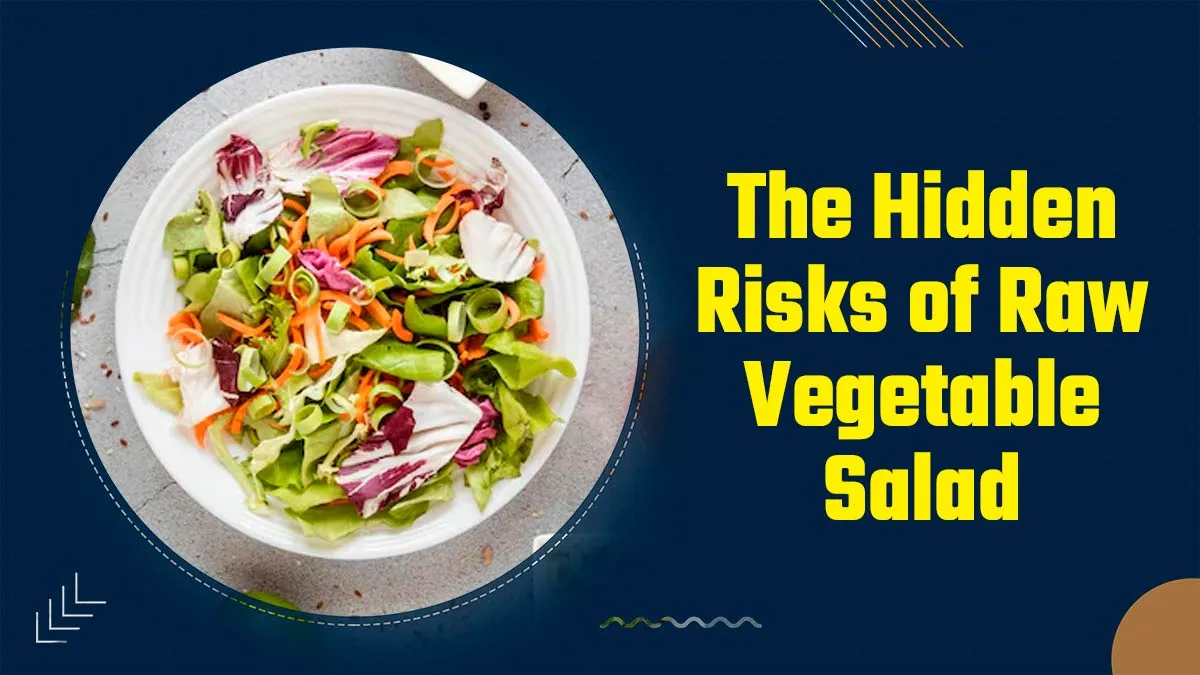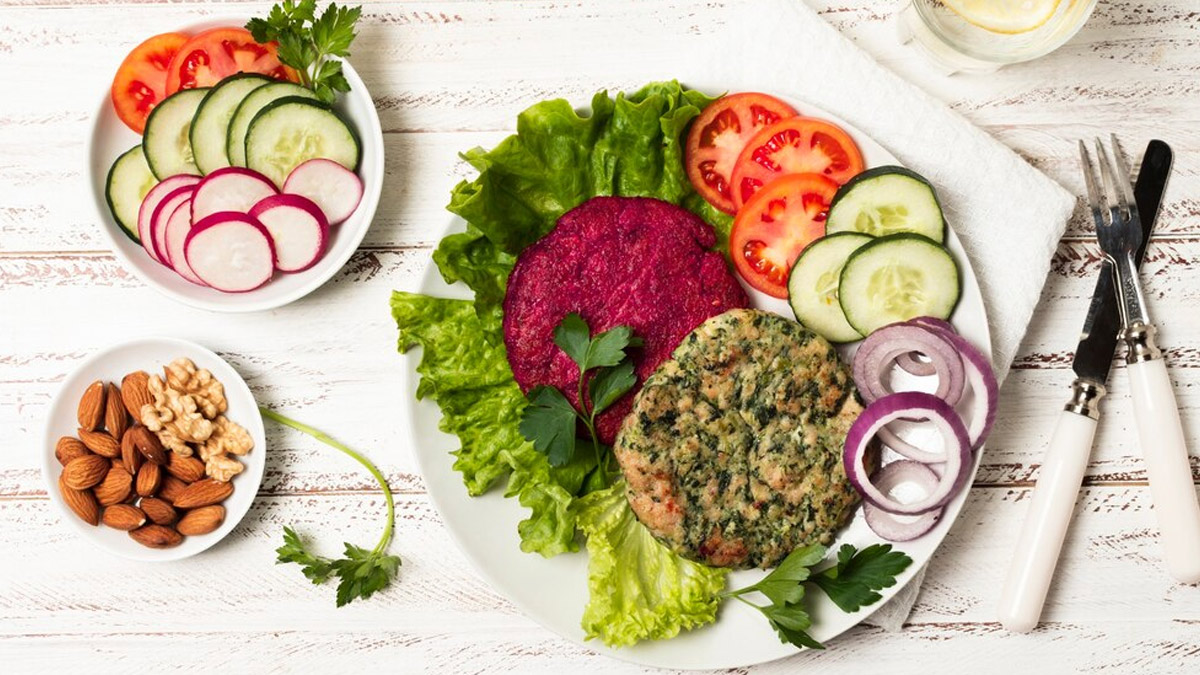
We all picture salads as the ultimate health food. It is a vibrant mix of fresh veggies, light as a feather, and brimming with goodness. It's the go-to meal for anyone watching their weight or trying to get their daily dose of vitamins. But hold on a second – could your virtuous salad actually be a wolf in sheep's clothing?
Table of Content:-
While there's no denying the upsides, like easy weight management, loads of fibre, and those precious nutrients, there might be a darker side to consider. Let's peel back the layers and uncover the hidden risks, so your healthy choice doesn't accidentally become a health hazard.
The Hidden Dangers of Raw Vegetables of Salads
View this post on Instagram
Dr Shivani Nesargi, Medical Doctor, Sanjeevini Hospital, Raichur, has a surprising take on raw salads. "People are often shocked, but I actually advise against ordering raw salads when they eat out, even though they think they're being healthy! Let me explain why..."
Dr. Nesargi explains how tapeworm larvae in the brain, are caused by something called cysticercosis. "When these tapeworms make their way into your brain, it's called neurocysticercosis. What's the culprit? Often, it's pre-cut, raw, or undercooked veggies like cabbage. Sadly, it's more common in India and other developing countries due to less-than-ideal hygiene practices."
ALSO READ: Does Maida Stick To Stomach? Expert Answers Sharing Strategies For Blood Sugar Regulation
The Not-So-Appetising Truth About Raw Salads
Below are a few hard facts about raw salads that often people ignore.
- Food Poisoning Risks are Real: Raw veggies can be a breeding ground for nasty bacteria. Contamination can happen at any point in the food chain.
- Beware of Uninvited Guests (Parasites!): Some raw vegetables, especially if grown in dodgy soil, can harbour parasites like roundworms or tapeworms.
- Tummy Troubles: Raw vegetables are packed with fibre, which is great, but they can be hard to digest. Many people experience gas, bloating, or other discomfort.
- Missing Out on Key Nutrients: While raw food retains some nutrients, a purely raw diet can lack essential vitamins and minerals like B12 and D.
Cleanliness is Next to Salad-ness
Dr. Nesargi is firm about proper cooking and hygiene. "If you really care about your health, choose cooked vegetables whenever possible," she advises. "Cooking kills bacteria, makes digestion easier (especially for sensitive stomachs), and helps your body absorb vitamins like A and lycopene more effectively."
She adds, "Plus, cooking helps reduce pesticide residue. Yes, it might add a few extra calories, but I'd rather you have those calories than get sick!"
What Science Says

While there aren't many studies specifically on salads, plenty of research highlights the risks of consuming contaminated produce. For example, a study published in Environmental Health Perspectives underscores how important it is to understand the potential health risks.
- Wash, Wash, Wash: Always give your raw veggies a good scrub to remove dirt, bacteria, and any lingering pesticides.
- Go Organic When Possible: Organic produce is grown without synthetic pesticides and fertilizers.
- Balance is Key: Don't make raw salads your only food group. Eat a variety of cooked foods to get a wider spectrum of nutrients.
- Dressings Can Be Deceiving: Skip the "fat-free" dressings that are often loaded with artificial stuff and corn syrup.
Listen to Your Gut: Pay attention to how your body feels after eating raw salads. If you're constantly bloated or gassy, maybe try lightly cooking your veggies instead.
ALSO READ: Is Pakhala Bhata Good for Health? Explore the Traditional Odia Dish and Its Benefits
Raw vs. Cooked: The Great Veggie Debate
Raw vegetables generally have a slight edge in nutrient content, but cooking can unlock the potential of certain nutrients. And while cooking reduces the amount of vitamin C, it also makes digestion a whole lot easier.
Conclusion: Making Smart Choices for a Healthier You
While raw vegetable salads are often celebrated for their health benefits, they can pose significant risks if not handled properly. They can be a fantastic part of a healthy lifestyle. By taking simple steps like washing your produce thoroughly and being mindful of your body, you can enjoy salads without worry. Sometimes, as Dr. Nesargi points out, cooking your veggies is the wiser, healthier option. By making small changes in how you prepare and consume vegetables, you can enjoy their benefits without compromising your well-being.
Also watch this video
How we keep this article up to date:
We work with experts and keep a close eye on the latest in health and wellness. Whenever there is a new research or helpful information, we update our articles with accurate and useful advice.
Current Version
